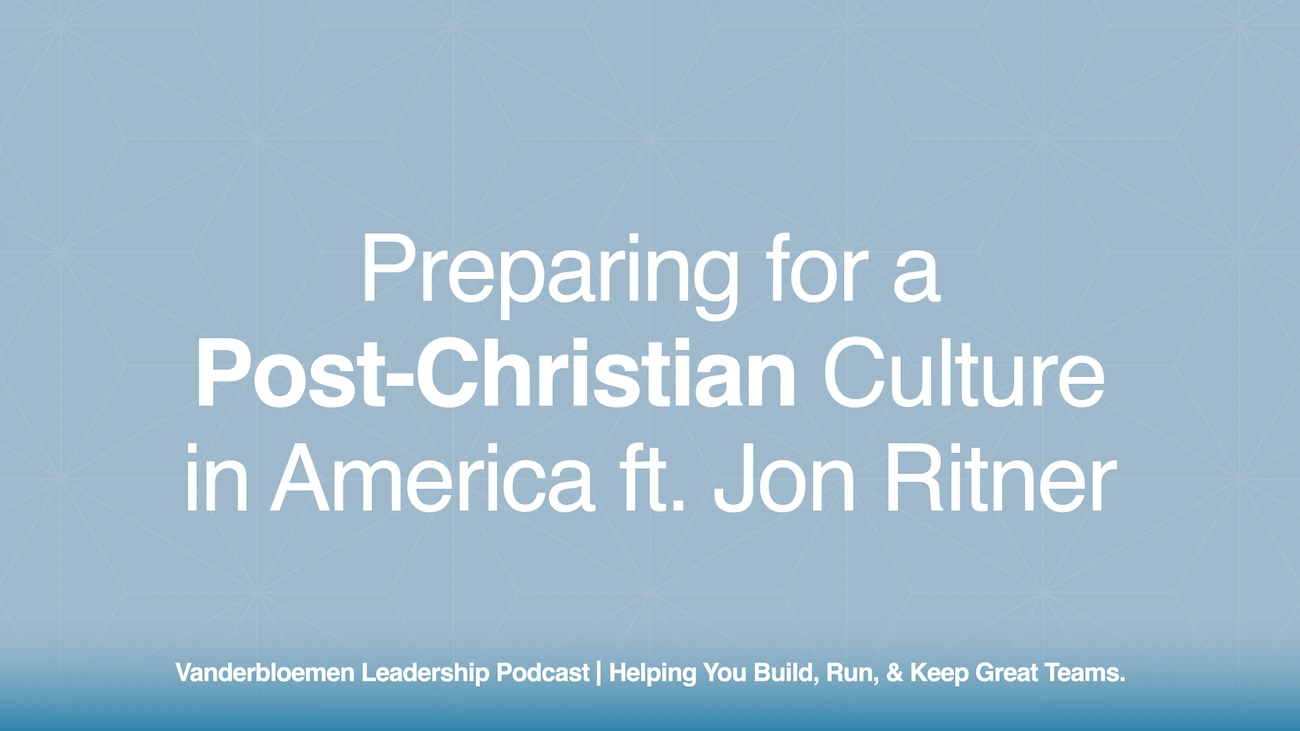Nobody wants the hiring process to take as long as it does. If you could snap your fingers and start your ideal candidate today, wouldn’t you? The problem is, the perfect candidate is not a snap of the fingers away. Finding that perfect fit takes some time, but if the process is rushed, and the wrong person is placed into the role, your expenses will add up quickly.
A bad hire will cost you valuable resources that should go toward your ministry’s greater purpose. Here are the five major costs of a bad hire to remind you to invest in hiring right the first time!
1. Time Better Spent Elsewhere
To state the obvious, nothing can really add or take away your time from you. You have a set amount of time to work within your ministry. Anything that redirects that precious time to go toward something outside of your direct purpose, costs your ministry. With each hire, your time is personally redirected away from your greater purpose, and your days are filled with meetings, resumes, job postings, phone calls, job descriptions, screening resumes, interviewing, and more. As a leader in your ministry, you have no business spending an extended amount of time focused on filling someone else’s role. You’ll want to minimize the amount of time this takes, not by rushing the process, but by delegating and ensuring that the process ends with a candidate who stays.
This means you and your staff have to frequently put off your most important needs to meet more urgent ones. The entire process of finding someone to hire, realizing they are not a good fit for the job, and restarting the hiring process is a time-costly journey that your ministry frankly cannot afford.
2. Time is Money
Nobody’s time is free. The intrinsic value of your and your staff’s time is one precious resource, and the money it costs is another. Your staff is employed to support your ministry, and their salary is worth their presence. But when their energy is funneled into the hiring process, you’re now paying portions of their (and your) salaries toward this specific goal, rather than any projects that more directly serve your community and greater cause. This could mean your ministry will end up paying well over several thousand dollars worth of time to recover from a bad hire.
3. One-time Costs
Certain one-time costs are gone forever once a hire fails as if you invested in a dead-end. In churches and non-profits, you often work with donor money that’s been entrusted to you. If you spend on meaningful projects, the value you get from your funds is multiplied to build something greater than you expected. On the other hand, if you invest in something that ends up feeding no greater purpose, those funds are lost, and you’re able to do less for your ministry than you could have.
Paying for travel to interview out-of-town candidates in person, onboarding costs, and relocation reimbursements are all important costs to consider when investing in a successful hire. Otherwise, they are wasted costs that you cannot get back.
4. Snowball Costs
Other costs only continue to build the longer you endure the hiring process, which is extended in the case of a bad hire. Time and money invested in job postings and ad costs, interviews, reviewing applications, meetings, and more are all costs that accomplish finding and ruling out candidates, but the longer this tedious process continues, the more hopeless and costly it can feel.
5. Confidence and Attendance
A bad hire is like getting kicked while you’re down. Your church has been needing this role filled for some time already, but when you finally fill the role… something’s off. Starting all over and hoping for a better result is exhausting for the staff, but consider also the great discouragement your congregation may feel.
The longer your leadership roles go unfilled, the more opportunity your churchgoers have to feel less at home within the transition phase. Long periods of guest speakers, divided attention and funds, and then the off-putting feeling of having the wrong person come and go from the role are all reasons people may lose sight of the greater mission of your church. This can especially be true for roles as public as senior pastors, or for youth pastors, who can influence how families feel about sending their children to your church. Sadly, many attendees may walk away.
A bad hire can push people away or discourage those who stay, leading people to give less financial support even during this time of great need. You’ll want to do everything in your power to reassure the congregation that the hiring costs are well-spent and will result in that perfect fit. Encourage your congregation throughout the process and hold fast to the greater purposes your ministry serves. Prioritize having consistent service and community so that people don’t become overwhelmed by the changes.
Vanderbloemen’s Bad Hire Calculator can provide you with a personalized estimate of how much a bad hire will cost you. It will also ask you questions that show you exactly where those costs come from throughout the process.
The big picture is, hiring is all about making the most of the resources you have. The end result of the hire should serve your ministry well, but you need to be careful that the process isn’t so costly that it puts your ministry in a weaker position. Wherever appropriate, get any help you need to delegate this process to cost you the least amount of time taken away from your ministry, and ultimately to result in the greatest fit.


